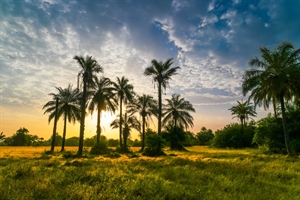Sub-Saharan Africa has much to offer travellers. The area covers most of the continent and includes diverse eco-systems – from desert in the north and south west to savannas to rainforest around the equator to the ‘Mediterranean’ coast of Southern Africa. A traveller will also be able to experience a huge range of cultures.
The region exports minerals, including about a third of the world’s bauxite, and a large proportion of the world’s uranium. New sources of oil are being discovered in Sub-Saharan Africa, too.
What shots do I need for Sub-Saharan Africa?
There are a number of unpleasant and dangerous diseases endemic to Sub-Saharan Africa. These include meningococcal meningitis, which is a potentially fatal disease contracted from respiratory droplets. The meningitis belt of Sub-Saharan Africa has a particularly high risk and includes all or part of these countries: Benin, Burkina Faso, Cameroon, Chad, Central African Republic, Cote d’Ivoire, Eritrea, Ethiopia, Gambia, Guinea, Guinea-Bissau, Mali, Niger, Nigeria, Senegal, Sudan and South Sudan.
How can I protect myself against food- and water-borne illnesses in Sub-Saharan Africa?
The hepatitis A shot will protect you from a virus that causes unpleasant gastro-intestinal (GI) symptoms. You may also wish to consider getting vaccinated against typhoid.
You cannot rely on the tap water in much of Sub-Saharan Africa, but don’t worry: a few basic precautions will help you avoid GI upsets during your visit.
Drink only water that you know is safe. Factory-sealed bottles are fine; or water that you know has been treated. Watch out for ice in drinks: freezing does not kill disease-causing organisms. For more hints, see our article on Water-borne diseases.
Only eat food that is hot and fresh. Raw food should be avoided, unless you can peel it yourself. Do not eat anywhere if you are uncertain about the hygiene standards. For more information see our article on Food-borne diseases.
Is Sub-Saharan Africa a malarious region?
You can contract malaria in parts of Sub-Saharan Africa from the bite of an infected mosquito. Malaria prophylaxis is available from our clinics. It can be tricky to find the right regime and to work out when to start your course of tablets, but the nurses at National Travel Clinics have all the information you need. They will also advise on mosquito-avoidance as there are some other unpleasant and dangerous illnesses contracted from insect and mosquito bites.
Do I need a yellow fever certificate for Sub-Saharan Africa?
There is a risk of yellow fever transmission in parts of Sub-Saharan Africa. This mosquito-borne disease can be fatal in some cases. There is a vaccine available, Stamaril, which confers good immunity. For more information about yellow fever vaccinations.
Other recommended shots for Sub-Saharan Africa
Discuss your destinations and planned activities with a dedicated travel health nurse at Canadian Travel Clinics to find out if you should get shots against rabies and hepatitis B before you go to Sub-Saharan Africa.
Make an appointment at our Global travel clinics at least six to eight weeks in advance as some vaccines need to be given in several doses over a few weeks.


Book Online